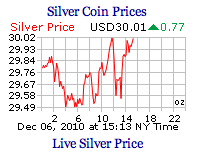 The UK is in sorry shape today. The British can at least take comfort in knowing that things are still not anywhere near as bad as they were over a half century ago during the gloomy days of the Blitz. Yet in contemplating where Britain is today, and comparing it to other dark periods, it would be well-advised to keep everything in historical perspective.
The UK is in sorry shape today. The British can at least take comfort in knowing that things are still not anywhere near as bad as they were over a half century ago during the gloomy days of the Blitz. Yet in contemplating where Britain is today, and comparing it to other dark periods, it would be well-advised to keep everything in historical perspective.
The Blitz was terrible, but it was far from the worst that could have happened. While the constant fear of bombing, mandatory curfews and destroyed cities rendered a great tragedy on Britain, the steady supply of Nazi bombs saved her from another fate. While German bombers were busy emptying their destructive cargo onto Britain, they were unable to drop a different type of cargo that would have meant not just sudden impairment of the livelihoods of the British (as did the bombs) but their future prosperity as well.
Operation Bernhard was hatched in 1942 by SS Major Bernhard Krüger (whose claim to fame now rests on naming what would become one of the War’s most devious plots after himself). The plan involved flooding the British economy with £5, £10, £20, and £50 notes. In what was the largest counterfeiting operation in history, a team of 142 “counterfeiters” (i.e., inmates) at the Sachsenhausen concentration camp toiled for three years to amass a sizeable British fortune: 8,965,080 Bank of England notes were produced with a total value of £134,610,810.
The initial plan called for bombing runs to drop the currency from the sky. Britons know a good deal when they see one – pounds sent from heaven would be a ray of sunshine in an otherwise dreary wartime economy. As the counterfeit pounds were spent, inflation would be triggered. The once proud British economy would be brought to its knees as skyrocketing prices would foil entrepreneurs’ plans, destroy savings, and otherwise wreak havoc on the economy.
Luckily, the tenacity of the British paid off. The Luftwaffe, increasingly hindered as the war wore on, lacked the bombers to drop the counterfeit notes over the British countryside. Disaster was averted.
And yet today we have a similar plan in action. Mervyn King, governor of the Bank of England, has undertaken his own little “Operation Bernhard.” The base money supply of the United Kingdom – the notes and coins in circulation – has increased by over 75 percent over the last decade. That supply of dingy notes and tarnished coins that weigh down Britons’ pockets has grown by leaps and bounds that Major Krüger could only dream of.
While the Nazi’s could only produce £134,610,810 over the course of the war, this is about 7 percent of what the Bank of England was able to produce in 2010 alone! Even at the height of the operation it is claimed that about 1 million counterfeit notes were produced per month. Even if we concede that all of these notes were of the largest denomination printed (£50), this would still only amount to £600 million a year. Even this massive figure pales in comparison to the approximately 1.9 billion extra pounds of currency that the Bank of England put into circulation last year.
To put it in other words: In the last year the Bank of England pursued an operation that was over twice as effective as the Nazi’s could only dream of during the height of the war. Mervyn King and his colleagues have pursued an inflationary policy the likes of which Britain’s largest enemies could only wish for during the war.
I know that you are supposed to have love for thine enemies, but this all begs the question: Mr King, whose side are you on anyway?




“While the Nazi’s could only produce £134,610,810 over the course of the war, this is about 7 percent of what the Bank of England was able to produce in 2010 alone!”
The key question is what the pre-existing base money supply was in WWII.
The analogy with Hitler is ludicrously over simple.
The bulk of the monetary base expansion in the US and UK is attributable to QE and the latter involves swapping government debt for cash. And govt debt and cash are not all that different. What’s the difference between govt debt near maturity and cash? None! So has there really been a monetary base increase? It’s debatable. But that’s too nuanced for “Professor” David Howden, I guess.
And then there is the fact that the volume of commercial bank created money has crashed. This casts further doubt on whether there has really been a money supply increase. Does “Professor” David Howden know anything about the distinction between central bank created money and commercial bank created money? I guess not, because he doesn’t mention it.
Mr Musgrave, I believe the following should help you understand why Dr Howden is making a distinction between government debt and money:
http://mises.org/daily/5052/Deflation-Confusion-Money-Is-Not-Credit
Ralph Musgrave:
indeed you are correct that there is a difference between debt and cash. It is not applicable in this case, as the numbers I use are for the newly issued currency in circulation (notes plus coin). It works out to the neighbourhood of around 30 pounds per Briton (I hope you received you cheque in the mail).
The point was more to show how far the pound has been inflated (devalued) over the last 60 years, and how this is an ongoing process.